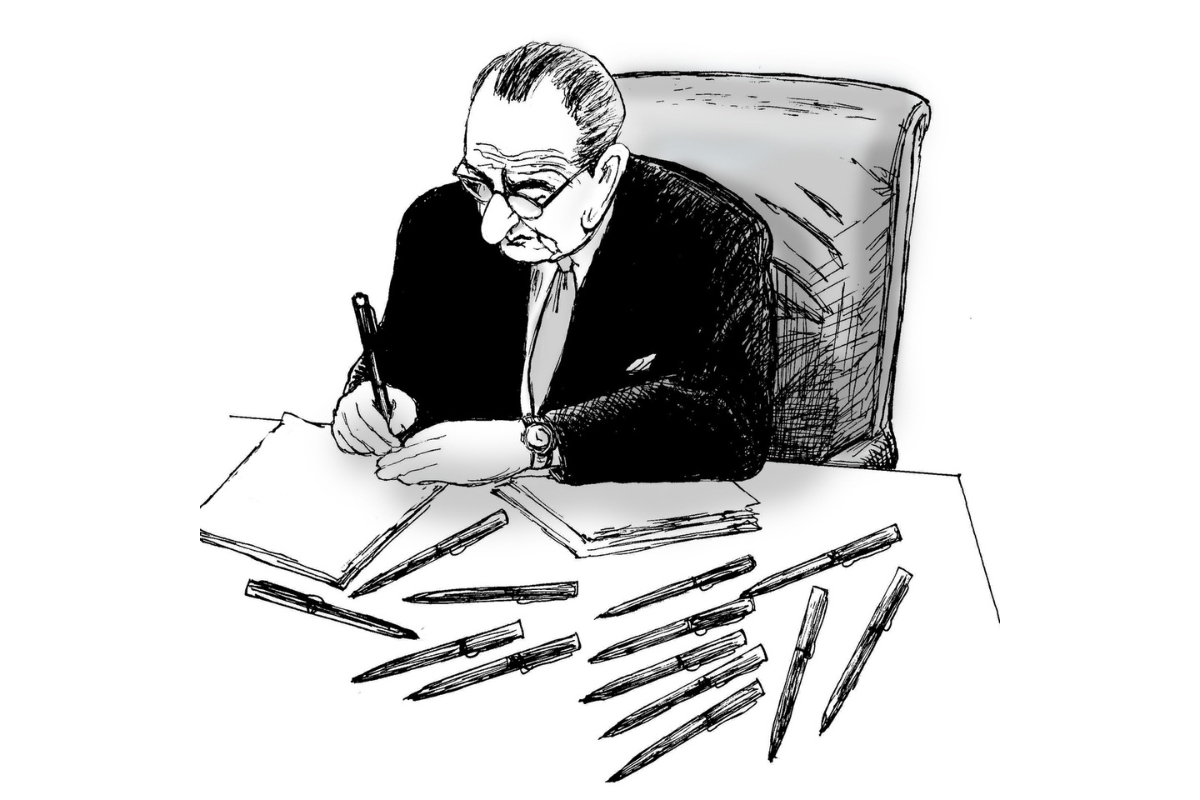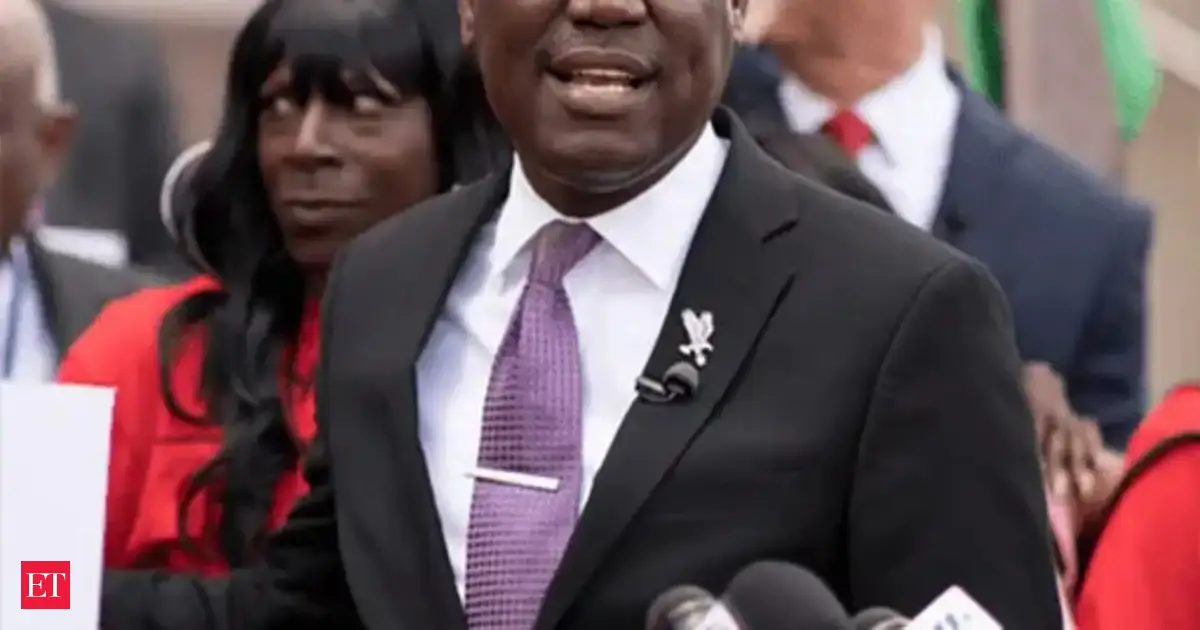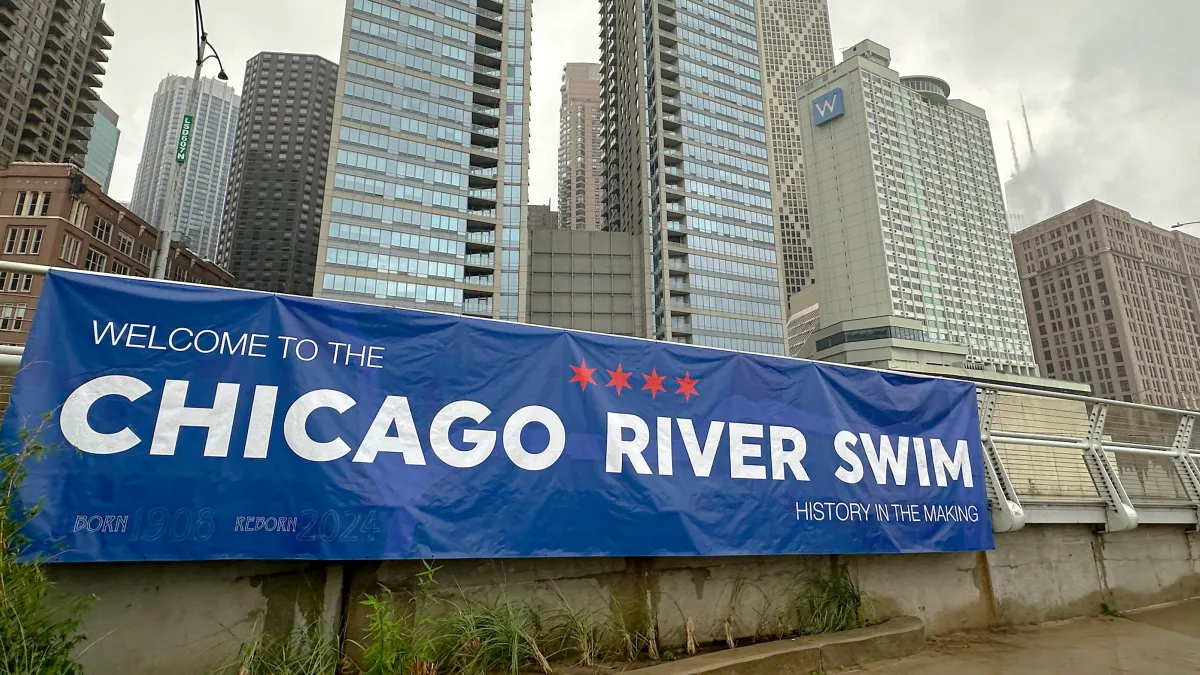
The BDN Opinion section operates independently and does not set news policies or contribute to reporting or editing articles elsewhere in the newspaper or on bangordailynews.com
Ryan LaRochelle is a senior lecturer at the William S. Cohen Institute for Leadership and Public Service at the University of Maine. He is a member of the Maine chapter of the national Scholars Strategy Network, which brings together scholars across the country to address public challenges and their policy implications.
In the first nine months of his second term in the White House, President Donald Trump has sought to unravel several programs and policies that bore the imprint of Lyndon Johnson’s Great Society. In May of 1964, Johnson laid out his vision for the future in a commencement speech at the University of Michigan. He proclaimed to the audience of young students: “Your imagination, your initiative, and your indignation will determine whether we build a society where progress is the servant of our needs, or a society where old values and new visions are buried under unbridled growth. For in your time we have the opportunity to move not only toward the rich society and the powerful society, but upward to the Great Society. The Great Society rests on abundance and liberty for all. It demands an end to poverty and racial injustice, to which we are totally committed in our time.”
Johnson’s Great Society included a slew of new federal programs including the Economic Opportunity Act (known more commonly as the War on Poverty), the Civil Rights Act of 1964, the Voting Rights Act of 1965, the Elementary and Secondary Education Act, and Medicare and Medicaid. The programs went far beyond earlier social welfare and civil rights initiatives. Low-income families and students gained access to new health and education programs like TRIO, Upward Bound, and SNAP (food stamps). In order to receive federal education and health care funding, local schools and hospitals were ordered to desegregate. The Department of Justice sent observers to polling places to ensure that localities were in compliance with the Voting Rights Act. The Economic Opportunity Act delivered federal funds directly to organizations run by low-income residents, which caused frustration among state and local government officials.
Johnson also dramatically altered the nation’s immigration system. The 1965 amendments to the Immigration and Nationality Act ended a quota-based system that gave preference to immigrants from northern and western Europe that had been in place since 1924. The 1965 law led to a gradual diversification of the nation. Prior to 1965, the U.S. population was more than 80% white. In 2020, whites made up around 60% of the population.
The Great Society programs sought to create a more diverse, racially egalitarian society where opportunity could flourish for everyone, regardless of background. This meant directly attacking historical injustice. At a 1965 speech at Howard University, Johnson declared that “[F]reedom is not enough. You do not wipe away the scars of centuries by saying: Now you are free to go where you want, and do as you desire, and choose the leaders you please. You do not take a person who, for years, has been hobbled by chains and liberate him, bring him up to the starting line of a race and then say, ‘you are free to compete with all the others,’ and still justly believe that you have been completely fair.”
Unsurprisingly, Johnson’s ambitious programs generated significant backlash. Ever since the 1970s, Republicans have tried to roll back many elements of his Great Society. Richard Nixon tried — and failed — to shut down the agency that administered the War on Poverty. In the early 1980s, Ronald Reagan proclaimed explicitly, “I’m trying to undo the Great Society.” Despite opposition from conservatives, many of LBJ’s programs have remained popular and have been difficult to scale back, until now.
Trump and his political allies have taken direct aim at many of Johnson’s signature initiatives. The “Big, Beautiful Bill” that Republicans passed this summer cut Medicaid funding by $1 trillion over the next decade in order to pay for tax breaks that will disproportionately benefit wealthy Americans and fund significant increases for Immigrations and Customs Enforcement (ICE), which will surely remake the nation’s immigration system. Cuts to Medicaid may force hospitals in rural states like Maine to close.
Trump recently froze more than $600 million in federal funding that Congress allocated for TRIO programs, and some programs have already been forced to shut down. The 1965 Voting Rights Act aimed to increase access to the ballot box, but Trump ordered the Justice Department to freeze all new civil rights claims while issuing several orders that many analysts argue will make it harder for Americans to vote.
Lyndon Johnson was far from perfect. He was crude, vulgar, and opportunistic. But his Great Society programs tried to push the nation closer to the ideals espoused in our founding documents. These initiatives fell short in many ways, but they nonetheless expanded access to health care, economic opportunity, and political participation for millions of Americans.
Many of the current administration’s actions are trying to undo these gains. In his Great Society speech, Johnson dared the nation to “begin our work so that in the future men will look back and say: It was then, after a long and weary way, that man turned the exploits of his genius to the full enrichment of his life.” The question we now must ask ourselves is what kind of future are we going to create?



